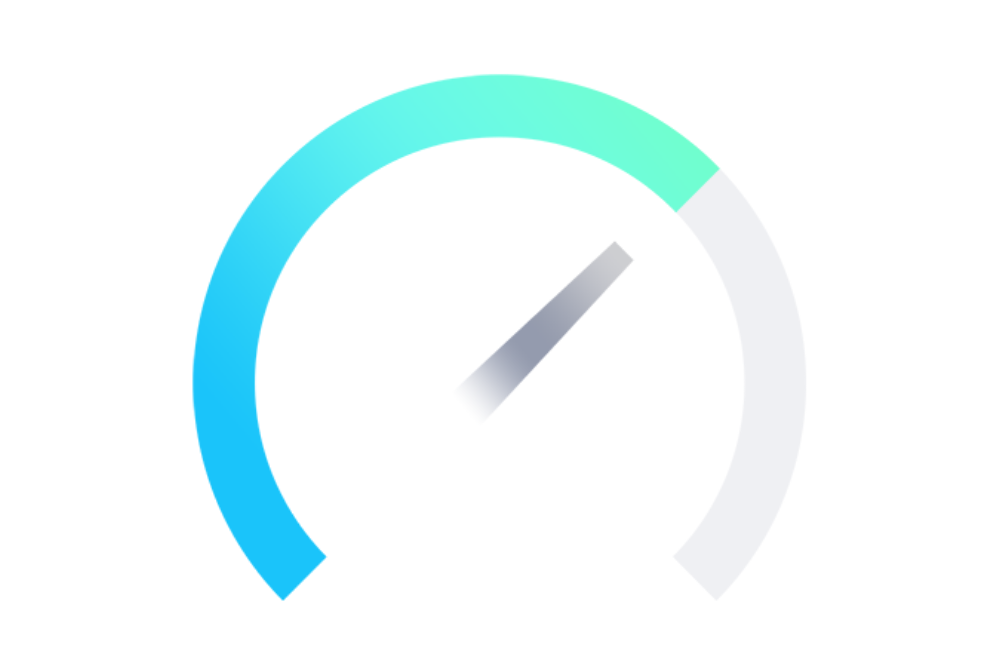There are many discussions about whether using a VPN connection slows down Internet speed. Just as many suggest that it effectively speeds it up. In fact, both theories are true. It depends on how and what you use the VPN for.
VPN data security and Internet speed
Internet connection speed using VPN services will depend on a few basic factors. These factors can also be crucial in choosing the best VPN service provider for you.
Most service providers will declare upfront that your Internet connection may have slower speeds. These drops are usually no more than a few percent of bandwidth, and are mostly caused by the encryption process itself and the passage through the intermediate server – the VPN server. So it is not unimportant to choose the right server, which, with all the encryption process, will be able to provide maximum throughput. If you have an efficient and powerful Internet connection and add encryption and a proxy server to it, the speed is bound to drop.
What can speed up your Internet? It is the VPN service itself, which by encrypting and securing your data, and therefore reducing external factors such as monitoring of traffic by, for example, a network service provider, eliminates factors that can limit or alter that traffic. so if it is not possible to control your activity, it will prevent the Internet connection speed from being intentionally limited, for example, by an ISP. Similarly, choosing the right server when connecting to a VPN, can result in faster access to certain resources. Access path to which will be shortened precisely thanks to the VPN service.
Internet speed factors using a VPN
VPN key factors that can affect the speed of Internet use during an established VPN connection:
- Paid and free solutions. There are free VPN services, not necessarily bad, but practically always carry a number of conditions and limitations. Most often, this manifests itself in low server performance and overcrowding due to high interest in a free solution. Lack of development opportunities for the service provider, resulting, for example, from lack of money, may contribute to the inability to optimize software, develop services, expand the offer or provide the best bandwidth. The number of available servers, a small number of which will translate into the need to connect to distant servers, which will ultimately lead to lower connection speeds, will also be important here.
- VPN server location. Although we operate on the Internet, which can be written to operate globally, the location of the servers – the physical distance as it separates us between devices – is not insignificant. A VPN server is one of the stops in the data flow and is often not located closest to you, especially if you care about accessing regionally restricted content. Online traffic must physically reach its destination in order to communicate with anyone.
- Security features. VPN services like, for example, NordVPN have a number of security and advanced protection features. They significantly increase user protection, but as this parameter increases, it can contribute to a decrease in Internet speed. This is the price the user will pay for additional encryption with privacy protection. However, this is not an action, pointing to a flaw in the tool, but to the complexity of the processes that are ultimately intended to contribute to greater comfort and satisfaction in the use of a VPN service, which has a specific task to perform,
- Congested VPN servers. The simplest way to describe is server “overcrowding” and therefore the popularity of a particular server. This problem most often arises with free services, where users, wanting to get the best connection, immediately decide to use the most powerful VPN servers. Which translates into the number of people interested in the same service. Using paid services and ensuring the best performance of each VPN server, traffic is distributed evenly,
- Internet service provider. Just as using a VPN can slow down your Internet speed, it can also speed it up, which will depend, for example, on what your ISP does and how it directs traffic. For example, a VPN may hide where your traffic is coming from and where it is going, so your ISP may send it by a different route than usual. If that’s the case, a VPN can increase your Internet speed every time you connect.

